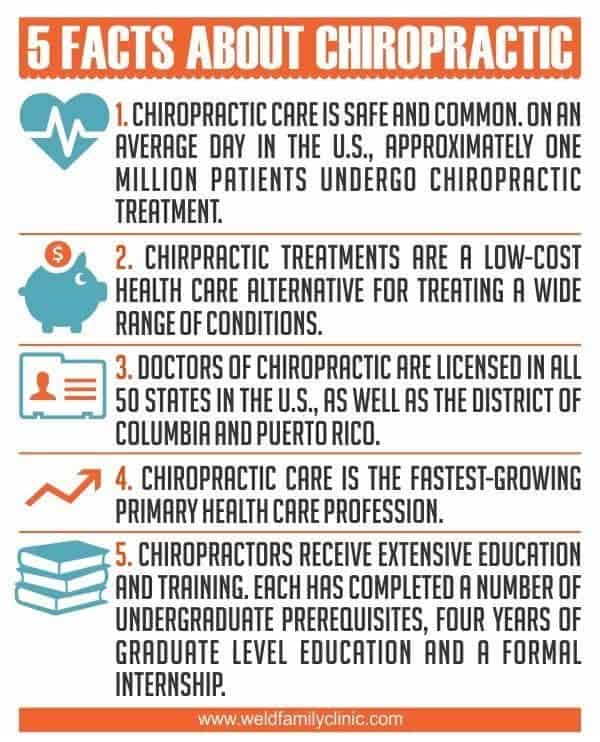Nutrition'S Impact On Back Pain Relief: Dietary Choices To Accept And Those To Stay Away From
Nutrition'S Impact On Back Pain Relief: Dietary Choices To Accept And Those To Stay Away From
Blog Article
Published By-Bond Camp
When it involves managing your pain in the back, the food choices you make can considerably impact how you feel each day. Imagine being able to ease your pain simply by adjusting what you eat. By recognizing the function of nutrition in pain in the back management and recognizing which foods to integrate or stay away from, you can take aggressive steps in the direction of a much healthier and a lot more comfy way of living. The connection in between nourishment and back health and wellness is a lot more profound than you might understand-- allow's check out how specific foods can either soothe or worsen your neck and back pain.
Importance of Nutrition in Pain In The Back
Nourishment plays a critical duty in taking care of pain in the back. Your diet regimen can considerably impact inflammation degrees and general discomfort levels in your back. Eating a balanced diet plan rich in nutrients like vitamins D and K, calcium, magnesium, and omega-3 fats can help in reducing swelling and enhance bones, which are important for back wellness.
In addition, maintaining a healthy and balanced weight through appropriate nutrition can minimize stress and anxiety on your back, minimizing the danger of neck and back pain.
Furthermore, certain nutrients like antioxidants discovered in fruits and vegetables can assist deal with oxidative stress and anxiety and promote healing in the body, including the back muscular tissues and back.
On the other hand, taking in too much quantities of processed foods, sweet beverages, and undesirable fats can add to swelling and weight gain, worsening neck and back pain.
Foods to Consume for Back Wellness
To support a healthy and balanced back, incorporating nutrient-rich foods into your day-to-day dishes is essential. Consisting of foods high in anti-oxidants like berries, spinach, and kale can help in reducing inflammation in your back, reducing pain and pain. Omega-3 fatty acids discovered in fatty fish such as salmon and mackerel have anti-inflammatory buildings that can benefit your back wellness.
Additionally, eating https://shanegyrkc.blogofchange.com/31200425/employ-chiropractic-like-boost-your-performance-in-sports-and-delve-into-the-essential-elements-that-define-this-significant-connection and seeds like almonds, walnuts, and chia seeds offers essential nutrients like magnesium and vitamin E, which support muscle mass feature and lower oxidative stress and anxiety. Integrating lean healthy proteins such as hen, turkey, and tofu can help in muscle repair work and upkeep, promoting a solid back.
Do not fail to remember to include dairy or strengthened plant-based alternatives for calcium to sustain bone health and wellness. Last but not least, hydrate with plenty of water to maintain your spinal discs moistened and operating optimally. By including https://jeffreyhcwql.blogripley.com/31279483/find-out-just-how-chiropractic-care-can-assist-in-pain-alleviation-and-enhance-your-well-being -dense foods in your diet regimen, you can nurture your back and support total spine health and wellness.
Foods to Prevent for Back Pain
Choose avoiding processed foods high in added sugars and trans fats when looking for remedy for neck and back pain. These sorts of foods can contribute to inflammation in the body, which may aggravate neck and back pain. Say no to sweet snacks sweet, breads, and sweet beverages, along with fast food items like burgers, fries, and fried poultry that are frequently filled with trans fats.
In addition, stay away from foods including high levels of polished carbs, such as white bread, pasta, and breads, as they can surge blood sugar levels and potentially intensify inflammation in the body.
It's also wise to limit your intake of foods high in hydrogenated fats, like red meat and full-fat milk items, as they can contribute to inflammation. Refined foods like deli meats, chips, and packaged treats are typically high in hydrogenated fats and should be consumed in moderation.
Final thought
In conclusion, focusing on your diet plan and making clever food options can have a significant influence on managing pain in the back. By incorporating nutrient-rich foods like berries, fatty fish, nuts, and lean proteins, and staying clear of processed and sugary items, you can help in reducing swelling and support in general back health. Bear in mind, what you consume plays a vital role in just how you feel, so make sure to prioritize your nutrition for a much healthier back.
